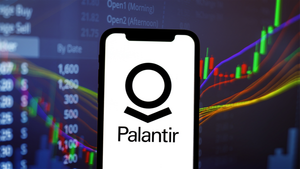
As of October 31, 2025, the financial landscape for investors tracking BlackRock Capital Investment Corporation (NASDAQ: BKCC) has fundamentally shifted. The notion of BKCC declaring a quarterly dividend of $0.10 per share is a relic of the past, as the company ceased to exist as an independent entity in March 2024. In a significant move that reshaped a segment of the Business Development Company (BDC) market, BlackRock Capital Investment Corporation merged with BlackRock TCP Capital Corp (NASDAQ: TCPC), with the latter emerging as the surviving and combined entity. This pivotal event means that dividend declarations are now made by BlackRock TCP Capital Corp, and its current dividend policy reflects a different structure and amount, carrying fresh implications for income-focused investors.
The merger has ushered in a new chapter for shareholders, moving from BKCC's historical $0.10 quarterly payouts to BlackRock TCP Capital Corp's current strategy, which includes a regular base dividend and periodic special dividends. This transition is crucial for investors, as it redefines their income stream and requires a reassessment of their investment thesis in the context of the larger, combined BDC. The strategic consolidation underscores broader trends within the BDC sector, where scale and operational efficiencies are increasingly prioritized to enhance shareholder value.
The Merger That Reshaped a BDC Giant: From BKCC to TCPC
The journey leading to the current state began with a definitive merger agreement announced on September 6, 2023. This agreement set the stage for BlackRock Capital Investment Corporation (NASDAQ: BKCC) to be acquired by BlackRock TCP Capital Corp (NASDAQ: TCPC). Shareholders of both entities overwhelmingly approved the merger proposals at special meetings held on March 7, 2024, with over 90% in favor. The merger officially closed shortly thereafter, on March 18, 2024, after market close. Consequently, BKCC common stock was suspended from trading effective March 19, 2024, and the combined company now trades on the Nasdaq Global Select Market under the ticker symbol "TCPC."
Under the terms of the merger, former BKCC shareholders received 0.3834 newly issued shares of TCPC common stock for each share of BKCC they held. This exchange ratio resulted in legacy TCPC shareholders owning approximately 67.5% and former BKCC shareholders owning about 32.5% of the combined company. The primary rationale behind this strategic consolidation was to forge a larger, more robust BDC with an enhanced asset base, totaling approximately $2.4 billion, and net assets of around $1.1 billion. This increased scale was envisioned to improve access to capital, generate meaningful operating expense synergies, and drive accretion of net investment income (NII) through reduced management fees and expanded portfolio growth opportunities. In a notable commitment to shareholder value, TCPC's advisor agreed to reduce the base management fee rate from 1.50% to 1.25% on assets up to 200% of the net asset value, alongside a waiver of advisory fees under certain NII per share conditions.
As of October 31, 2025, the dividend policy of the merged entity, BlackRock TCP Capital Corp (NASDAQ: TCPC), reflects a commitment to both regular income and opportunistic distributions. TCPC has declared a regular quarterly dividend of $0.25 per share, with the next regular dividend having an ex-date of December 17, 2025, and a payment date of December 31, 2025. In addition to this base dividend, TCPC has also declared special dividends, such as the $0.04 per share special dividend announced in the second quarter of 2025, which was payable on September 30, 2025, to stockholders of record as of September 16, 2025. This dual-dividend approach, supported by an adjusted net investment income of $0.31 per share in Q2 2025, demonstrates the combined entity's capacity to cover its payouts and signals a potentially stable income stream for investors.
BDCs and the Evolving Dividend Landscape for Income Investors
Business Development Companies (BDCs) play a crucial role in the financial markets by providing capital to small and mid-sized companies, often those that cannot access traditional bank financing. In return, BDCs are legally required to distribute at least 90% of their taxable income to shareholders as dividends, making them attractive vehicles for income-focused investors. Historically, BlackRock Capital Investment Corporation (NASDAQ: BKCC) exemplified this model, offering a consistent quarterly dividend of $0.10 per share, which was a cornerstone of its appeal to its investor base.
The merger with BlackRock TCP Capital Corp (NASDAQ: TCPC) significantly alters the landscape for former BKCC investors. While the standalone BKCC offered a predictable $0.10 per share, TCPC's current regular quarterly dividend stands at a higher $0.25 per share, complemented by occasional special dividends. This change means that former BKCC investors, now shareholders of TCPC, are receiving a different, and in some aspects, more substantial, regular income stream. However, the special dividends introduce an element of variability, as their declaration is often tied to the company's performance and distributable earnings beyond the regular payout.
For investors who relied on BKCC's specific dividend profile, the transition to TCPC's dividend policy necessitates a re-evaluation of their investment strategy. The combined entity's ability to cover its regular dividend with net investment income, as evidenced by Q2 2025's $0.31 NII per share against a $0.25 regular dividend and $0.04 special dividend, suggests a healthy financial position. However, the elimination of the $0.10 BKCC dividend in favor of TCPC's structure highlights the dynamic nature of BDC payouts, which can evolve due to corporate actions like mergers, changes in investment strategy, or broader market conditions. This event serves as a reminder for BDC investors to closely monitor the financial health and dividend policies of their holdings, especially in an environment of industry consolidation.
Wider Significance: BDC Consolidation and Market Dynamics
The merger of BlackRock Capital Investment Corporation (NASDAQ: BKCC) into BlackRock TCP Capital Corp (NASDAQ: TCPC) is more than just an isolated corporate event; it is indicative of a broader trend of consolidation within the Business Development Company (BDC) sector. This movement towards larger, more scaled entities is driven by several factors, including the pursuit of greater operational efficiencies, enhanced access to capital markets, and the ability to compete more effectively for investment opportunities. Larger BDCs can often secure more favorable terms on debt financing, diversify their portfolios more broadly, and potentially reduce per-share operating expenses, all of which can ultimately benefit shareholders.
This consolidation has several ripple effects across the industry. For competitors, the emergence of a larger, more formidable player like the combined BlackRock TCP Capital Corp (NASDAQ: TCPC) can intensify competition for attractive lending opportunities and potentially pressure smaller BDCs to seek similar strategic alliances. For partners, such as the companies BDCs lend to, a larger capital base from the merged entity could mean access to more substantial or flexible financing solutions. The reduction in management fees, as agreed upon by TCPC's advisor in connection with the merger, also sets a precedent that could influence fee structures across the industry, potentially leading to more competitive terms for investors.
Historically, periods of economic uncertainty or increased regulatory scrutiny have often spurred consolidation in various financial sectors, including BDCs. Such mergers are often seen as a way to build resilience, optimize balance sheets, and leverage economies of scale to navigate challenging market conditions. While there are no immediate new regulatory implications directly stemming from this specific merger, the overall trend of BDC consolidation is likely to attract continued attention from regulators, particularly concerning market concentration and potential impacts on access to capital for small and mid-sized businesses. This event underscores the ongoing evolution of the BDC landscape, where strategic mergers are becoming a key mechanism for growth and competitive positioning.
What Comes Next: Navigating the Evolved BDC Landscape
Looking ahead, the future trajectory for BlackRock TCP Capital Corp (NASDAQ: TCPC) and its dividend policy will be a focal point for investors. The company's commitment to a regular quarterly dividend of $0.25 per share, coupled with its capacity for special dividends, suggests a stable income outlook, provided that its net investment income continues to cover these distributions. Investors will closely monitor TCPC's quarterly earnings reports for insights into its portfolio performance, investment income generation, and any changes in management's outlook on future dividend declarations, particularly regarding the sustainability of special payouts. The ability to consistently generate NII in excess of its base dividend will be crucial for maintaining investor confidence and potentially increasing future distributions.
For the broader BDC market, the successful integration and performance of the combined BlackRock TCP Capital Corp could serve as a blueprint for further consolidation. Other BDCs facing challenges related to scale, access to capital, or operational efficiency might explore similar merger opportunities. This could lead to a more concentrated BDC sector, with fewer, but larger and potentially more robust, players. Such a scenario would present both opportunities and challenges: opportunities for enhanced returns through scale and efficiency, but also challenges in terms of reduced investment choice for those seeking diversified exposure across many smaller BDCs.
Strategic pivots for BlackRock TCP Capital Corp (NASDAQ: TCPC) may include optimizing its combined investment portfolio, leveraging its increased scale to pursue larger and more complex lending opportunities, and potentially expanding into new asset classes or geographies within its mandate. Market opportunities may emerge from a potentially larger pool of borrowers seeking financing from a more substantial BDC. However, challenges could include integrating diverse corporate cultures, managing a larger and more complex portfolio, and navigating competitive pressures from other large BDCs and traditional lenders. The ongoing economic environment, interest rate trends, and credit market conditions will also play a significant role in shaping TCPC's performance and strategic decisions in the coming months and years.
A New Dividend Reality: Key Takeaways and Future Watch
The transformation of BlackRock Capital Investment Corporation (NASDAQ: BKCC) into a component of BlackRock TCP Capital Corp (NASDAQ: TCPC) marks a definitive end to BKCC's standalone dividend history and ushers in a new era for its former investors. The key takeaway is clear: the $0.10 quarterly dividend from BKCC is no longer relevant, replaced by TCPC's current dividend strategy which includes a $0.25 regular quarterly dividend and periodic special dividends. This shift underscores the dynamic nature of financial markets and the importance of staying abreast of corporate actions that can profoundly impact investment income.
Moving forward, the market will assess BlackRock TCP Capital Corp's ability to consistently generate strong net investment income to cover its dividends, particularly its base payout. The successful integration of the two companies and the realization of the anticipated synergies will be critical factors in TCPC's long-term performance and its attractiveness to income investors. The merger has created a larger, more scaled BDC, which theoretically positions it for greater stability and growth, but execution remains paramount.
Investors should closely watch BlackRock TCP Capital Corp's (NASDAQ: TCPC) quarterly earnings reports, paying particular attention to its net investment income per share, dividend coverage ratios, and management's commentary on portfolio health and future dividend intentions. The frequency and magnitude of special dividends will also provide insights into the company's excess distributable income. This event serves as a powerful reminder that while BDCs can be excellent sources of income, their dividend policies are subject to change, especially in the wake of significant corporate restructuring. Understanding the new dividend reality of BlackRock TCP Capital Corp is essential for informed investment decisions in the evolving BDC landscape.
This content is intended for informational purposes only and is not financial advice







